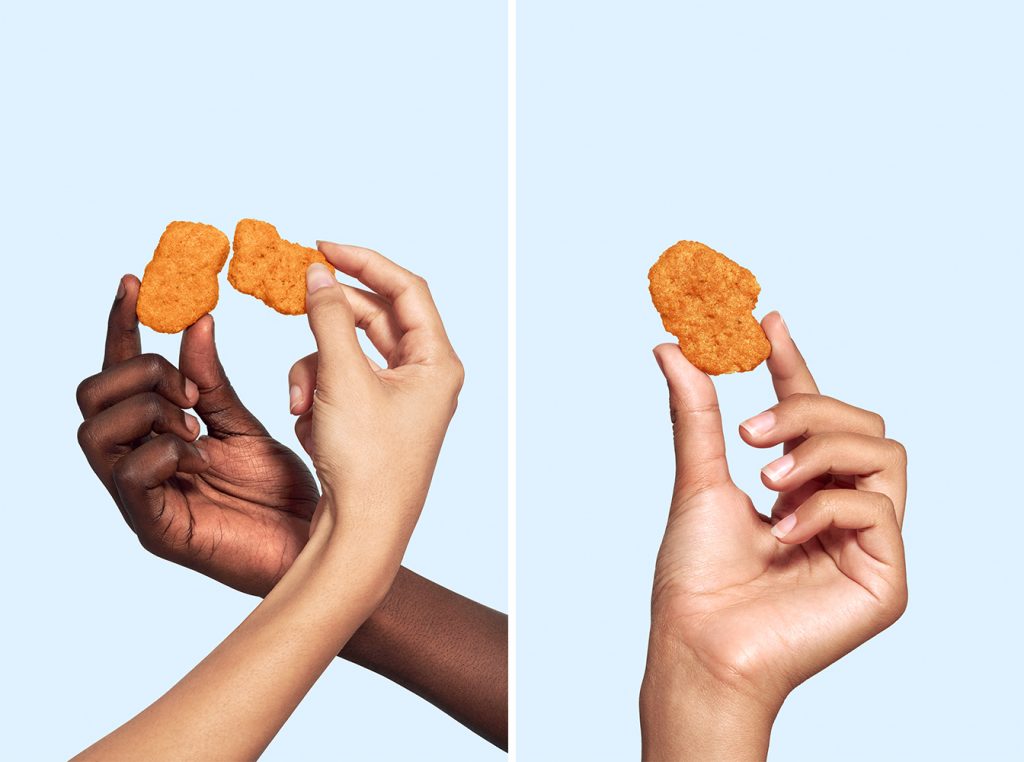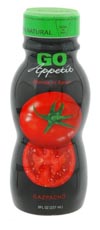SIMULATE Founder Ben Pasternak Aims to Optimize Human Nutrition
His company’s meatless chicken nuggets, known as NUGGS, mark the beginning of a portfolio of alternative foods

The humble chicken nugget (equally beloved and condemned) takes on new life thanks to SIMULATE—a nutrition technology company founded by Ben Pasternak. The brand’s debut product, NUGGS, proves nearly indistinguishable from the traditional version, but they are entirely plant-based. The company, however, is careful to point out that descriptors like “vegan” or “vegetarian” aren’t necessarily crucial in the product’s messaging. While they are made up of mostly water, soy protein concentrate, soybean oil, textured wheat protein, breadcrumbs and a few other ingredients, the company refers to it all as a “chicken simulation,” which hints at how Pasternak and SIMULATE approach human nutrition and food tech in general.

With NUGGS, Pasternak tells us, “The intent was to create a meat alternative that was appealing to more than just vegans and vegetarians. We felt that a chicken nugget was a good entry point: it’s not very controversial, and it’s hard to be angry at. And with SIMULATE, I had a lot of the foundational ideas, but I didn’t know how to piece them together.”
It was 2018 when he first conceptualized NUGGS. Using a plant-based nugget as a starting point, Pasternak then worked to grow SIMULATE. “The core thing that I wanted to create was a nutrition company that operates with a software framework. You can see in the release notes how we’re always making our products better,” he explains. “We’ve seen from the data that people have really got into it. [With this] latest version, 92% of people gave it a 10 out of 10. I think the very first version—I think it was something like 97% people disliked it. So, it’s come a long way.”

Because of Pasternak’s approach, NUGGS has been able to evolve several times over since its inception. On an even larger scale, the company has toyed with the foundational make-up of the food. Flavors have changed too: the Original flavor remains popular but Spicy and Extra Spicy (though limited to a select few fans) have since surpassed it.
“If you think about it in code context, it’s a completely different code base,” Pasternak says of NUGGS today versus the 2018 version. “The core protein we use is now soy protein. We initially launched with a pea protein. It’s changed a lot. When when we first released it, the feedback was very consistent: ‘Oh, it doesn’t taste good,’ or whatever it may be. Over time, as we’ve gotten closer and closer to being indistinguishable from chicken, the feedback has gotten a lot more granular. The way we gather feedback had to change too. Now we collect information on something like 60 variables—from different flavor profiles to springiness. [We’re] turning the dials and refining these variables to the point where we’re indistinguishable from chicken, which we are pretty close to at this point.”

To comprehend Pasternak’s obsession over the fine details of his company’s faux meat, one must understand the lens through which he views food—and our continued consumption of traditional meat products. From the resources needed to raise animals to the supply chains that pass them on to grocers, all of these processes remain largely unchanged, at least from an environmental standpoint. Many of these steps have been streamlined, but the impact (and result) is undoubtedly ripe for reinvention.
When you go to a coffee shop, it’s now, “What type of milk do you want?” I think that the same thing is going to happen with meat
“If you’re familiar with software engineering, we consider our lab to be like a local server, and then direct-to-consumer to almost be like a staging server. We can test things really quickly,” Pasternak explains. While other meat-alternative companies have come before them, claims of ultra-healthiness or meat-like bleeding aren’t what SIMULATE strives for. After all, NUGGS are still fried nuggets. “We’re kind of sneaking in there and saying, ‘Hey, it should actually be done like this.’ And now this exists. But still, I think 1% of meat in the USA is plant-based. At minimum, it’s going to very quickly become kind of like milk. When you go to a coffee shop, it’s now the conversation, ‘What type of milk do you want?’ I think that the same thing is going to happen with meat.”

This mindset can be attributed to a handful of shifts in consumer consciousness—the need to slow climate change being just one. Pasternak aims to draw a clear line between their processes and products and those of traditional meat purveyors. “From a climate change perspective, there are two core culprits: transportation and nutrition,” he says. “While transportation has gone from horseback to multi-planetary rockets in a couple hundred years, nutrition has been pretty flat. We produce a lot more food, though most of the food has actually decreased in quality. And that’s why I created the company.”
Advancements in food, while embraced in certain spheres are dismissed in others. “It’s weird that something like genetic modification (which is arguably the biggest technological change within nutrition) has a negative reputation,” Pasternak continues. “The nutrition system is one of the few systems in the world that has historically been anti-technology, or very against technology. It’s very primitive that we essentially eat the same way as we have for millions of years. We’ve scaled up farming, but it’s still very primitive. That’s why we fundamentally created SIMULATE, to bring technology to nutrition and create that intersection. And I think that meat alternatives is the most basic thing we could do.”

Further, Pasternak sees room for improvement on a personal level, too. Because foods are less nutritious than they once were, our bodies are less primed than ever. With SIMULATE, he believes each category of food can be assessed for reprogramming, like a computer would be as it ages.
“It’s really about optimizing efficiency… There are lots of different metrics, but let’s say on average that 40% of food is wasted. The whole system is highly, highly inefficient. In any other context, say if I went to a gas station and put gas in my car, and instantly as I left the gas station 40% of that fuel was gone, people would not be happy. But that’s essentially what’s happening in the nutrition system. We kind of have to rebuild the entire thing from a principles basis.”
For now, SIMULATE’s restructuring has begun with (simulated) chicken nuggets. Whatever’s next, courtesy of the countless technologies at play within their labs, could revolutionize our diet.
Images courtesy of SIMULATE / NUGGS












